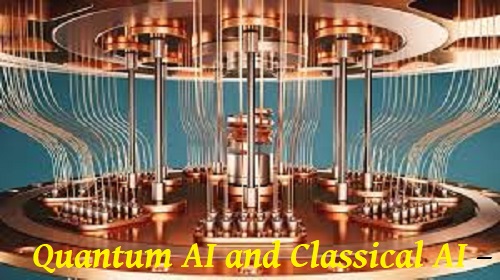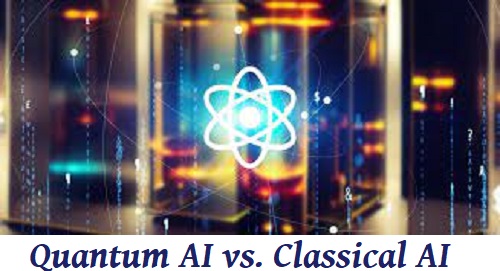Unlocking the Future: The Evolution of Artificial Intelligence (AI)
Artificial Intelligence (AI) has undergone remarkable advancements, propelled by classical AI algorithms that have fueled innovation and addressed intricate challenges. As we stand on the precipice of a new era, the emergence of Quantum AI marks a revolutionary paradigm shift. By tapping into the principles of quantum mechanics, Quantum AI is poised to redefine the landscape of AI, promising unprecedented capabilities and possibilities.
In this ever-evolving journey, classical AI has been a stalwart, driving progress and breakthroughs. Its algorithms have navigated complexities, offering solutions that have reshaped industries and technologies. However, the advent of Quantum AI introduces a transformative approach, leveraging the unique properties of quantum mechanics to usher in a new frontier of computation.
The integration of quantum principles, such as superposition and entanglement, empowers Quantum AI to process information in ways previously deemed impossible. This not only expands the horizons of problem-solving but also opens doors to novel applications across diverse domains.
As Quantum AI takes center stage, it beckons a future where computation transcends traditional boundaries. The synergy between classical AI’s established prowess and Quantum AI’s quantum leap brings forth an era of unparalleled possibilities. The convergence of these two realms holds the key to unlocking solutions to challenges that were once considered insurmountable.
Harnessing Power: Quantum Parallelism vs. Classical Sequential Processing.
The main difference between Quantum AI and Classical AI is how they handle information. Classical AI uses classical bits, which can be in a state of either 0 or 1, and processes them one after the other. On the other hand, Quantum AI uses qubits. These qubits, thanks to superposition and entanglement principles, can be in multiple states at the same time. This ability to be in multiple states simultaneously allows quantum computers to process a lot of information at once, offering the potential for much faster speeds in certain tasks compared to classical computers.

Problem-solving Capabilities: Quantum Superposition
Quantum AI has a special skill called superposition, allowing it to be in many states simultaneously. This means it can explore multiple solutions to a problem all at once. This is really helpful for tasks that require complex optimization, as Quantum AI can think about many different possibilities at the same time. On the other hand, Classical AI, which processes information one step at a time, might take much more time to explore the same set of solutions.
Quantum Advantage : Machine Learning and Pattern Recognition
Machine learning, which is a part of AI, uses big sets of data to find complicated patterns. Quantum AI is really good at machine learning because its quantum algorithms can be more efficient than classical algorithms. This is especially clear when working on tasks like recognizing images, understanding language, and suggesting things
Security: Quantum Cryptography vs. Classical Encryption
Keeping things safe is super important in AI, especially with more cyber threats around. Quantum AI brings in something called quantum cryptography, using the special properties of quantum mechanics to make communication channels really secure. The usual way of encrypting things, called classical encryption, might have some problems with the new powerful quantum computers because they can solve certain math problems that classical encryption depends on.
Real-world Impact: How Quantum AI is Shaping Today and Tomorrow
Quantum AI stands as a beacon of promise for the future, but it’s crucial to recognize the current hurdles and limitations. Quantum computers are still in their early developmental phases, grappling with challenges like error correction and preserving quantum coherence on a large scale. While Classical AI, being more established, continues to lead the way in everyday applications. Join us as we delve into the nuances of Quantum AI’s potential and the roadblocks it faces on its journey to mainstream implementation
Conclusion:
The ongoing discourse between Quantum AI and Classical AI reveals distinct strengths and weaknesses in each approach. While Quantum AI holds undeniable potential to revolutionize specific problem-solving tasks, its evolution is still underway. Classical AI, meanwhile, continues to serve as the backbone of contemporary applications. As quantum technologies progress and surmount current challenges, we anticipate a transformative impact across industries, positioning Quantum AI as a potent complement to, rather than a replacement for, Classical AI in the ever-evolving landscape of artificial intelligence.





